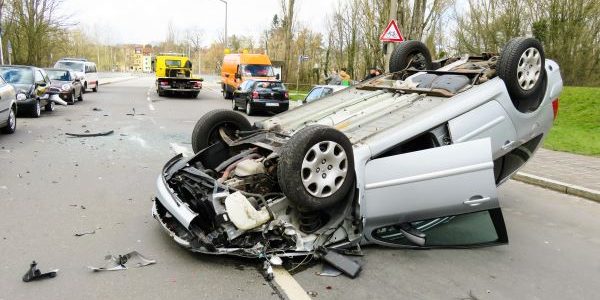Most modern vehicles are designed with improved safety features that reduce the likelihood of a rollover during a crash. However, it is important to understand that no vehicle is entirely immune. Certain driving conditions, behaviors, and vehicle types still pose significant risks. Top-heavy vehicles such as SUVs, pickup trucks, and Jeeps are especially prone to rollover accidents due to their higher center of gravity. Understanding what causes rollovers and how to avoid them can save lives. Here are several important tips to help prevent a rollover crash:
- Perform Regular Tire Maintenance -Tires play a critical role in vehicle stability. Driving with improperly inflated or worn-out tires significantly compromises your ability to maintain control, especially during sudden maneuvers or in inclement weather. Check your tire pressure at least once a month and before long trips. Make sure your tires have sufficient tread depth and replace them when they show signs of uneven wear or balding. Properly maintained tires help ensure better traction and a more stable ride, especially on curves and during emergency steering.
- Never Overload Your Vehicle – Every vehicle comes with a manufacturer-specified load rating. Exceeding this limit can drastically reduce your vehicle’s stability. Overloading raises the center of gravity, making the vehicle more top-heavy and susceptible to tipping. Distribute cargo weight evenly. Place the heaviest items as low to the floor and as close to the vehicle’s center as possible. Avoid loading cargo on the roof whenever you can, as that can significantly increase the risk of a rollover.
- Don’t Speed – Speeding is a major contributor to rollover crashes. According to safety studies, about 40 percent of fatal rollover accidents involve vehicles that were traveling at excessive speeds. High speeds reduce your reaction time and increase the force of impact in the event of a crash. This heightens the chances of the vehicle rolling over. Always observe speed limits, especially in sharp turns or adverse conditions. Drive more slowly when roads are slick or visibility is poor.
- Avoid Distractions While Driving – Distracted driving is dangerous under any circumstances but especially risky when operating a tall, narrow, or heavy vehicle. Taking your eyes off the road for even a second to check your phone, adjust the radio, or talk to passengers can delay your response to a sudden obstacle or collision. Stay focused. Keep both hands on the wheel and your attention fixed on your surroundings at all times.
- Take Corners with Caution – High-speed cornering increases the risk of a rollover, particularly in top-heavy vehicles. When a car turns sharply, the centrifugal force pulls it outward from the turn’s center. If the vehicle’s speed is too high, this force can cause it to tip. Slow down before entering a curve and take it smoothly to keep your vehicle’s weight evenly distributed.
- Be Extra Cautious on Rural Highways – Nearly three-quarters of all fatal rollover accidents happen on rural roads, often on undivided highways where speed limits exceed 55 mph. These roads may lack guardrails and are more likely to have sharp turns, uneven surfaces, or unexpected obstacles like animals. When driving in rural areas, stay alert, slow down, and watch for signs indicating upcoming curves or changes in road conditions.
- Avoid Panic Steering and Overcorrection – If your tires leave the road or you suddenly need to steer to avoid an obstacle, stay calm. Oversteering or jerking the wheel sharply—especially at high speeds—can cause a vehicle to become unstable and roll. Instead, try to gradually guide your vehicle back on course while maintaining as much control as possible.
- Never Drive Under the Influence – Driving under the influence of alcohol or drugs is a leading cause of rollover crashes. Nearly half of all fatal rollover accidents involve impaired drivers. Alcohol diminishes coordination, slows reaction time, and impairs judgment—all of which are crucial for safe driving. Always designate a sober driver or use a ride-sharing service if you’ve been drinking.
- Always Buckle Your Seatbelt – In the event a rollover does occur, your best protection is your seatbelt. It keeps you restrained and prevents you from being ejected from the vehicle, which is often fatal. Make sure everyone in the vehicle, including those in the back seats, is buckled up before you start driving.
If your vehicle has been in an accident and you need reliable repairs, call Sharp Auto Body at (847) 526-1343. Our experienced technicians will get you back on the road safely and efficiently.








